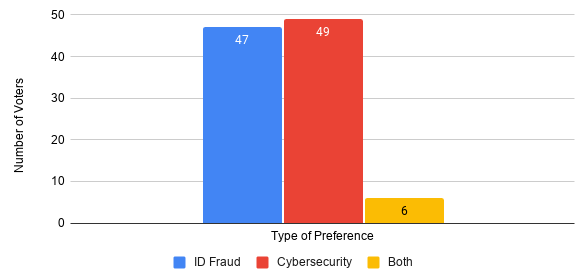Comparison of Perception of 2020 Election Security Threats Between Young and Old Voters
(1) Schaumburg High School, Schaumburg IL
https://doi.org/10.59720/20-170
Elections constitute the bedrock of a democratically governed society. Due to the long time it has historically taken to ensure equal social participation, the integrity of elections needs to be particularly protected to make every vote count. The democratic process itself has been subject to manipulation through widespread illegal practices in many municipal areas like New York or Chicago that have earned in the past a notoriety for ballot stuffing or stealing votes through impersonation. In the current American social climate of the 2020 presidential election, the same concerns come up to the forefront, compounded by threats of cybersecurity. Our research gauged types and extent of concernment among two age groups of voters: college students and senior citizens. We explored the correlations using the baseline survey and re-examined them after applying information frames through a paired comparison. We found that opinions about voter ID laws and cybersecurity have a strong association to age. Our original hypothesis was that seniors will unchangeably perceive voter identification as essential to election safety while young people will emphasize cybersecurity but will be open-minded. Contrary to that hypothesis, seniors expressed an equal concern over voter ID and cybersecurity and seemed to be more susceptible to the influence of new information. Comparably, college students overwhelmingly confirmed their preoccupation with cybersecurity, marginalizing voter ID, but unexpectedly did not show inclination to easily change their views. The age of voters plays a role in how they perceive the concerns and how they react to information about them.
This article has been tagged with: